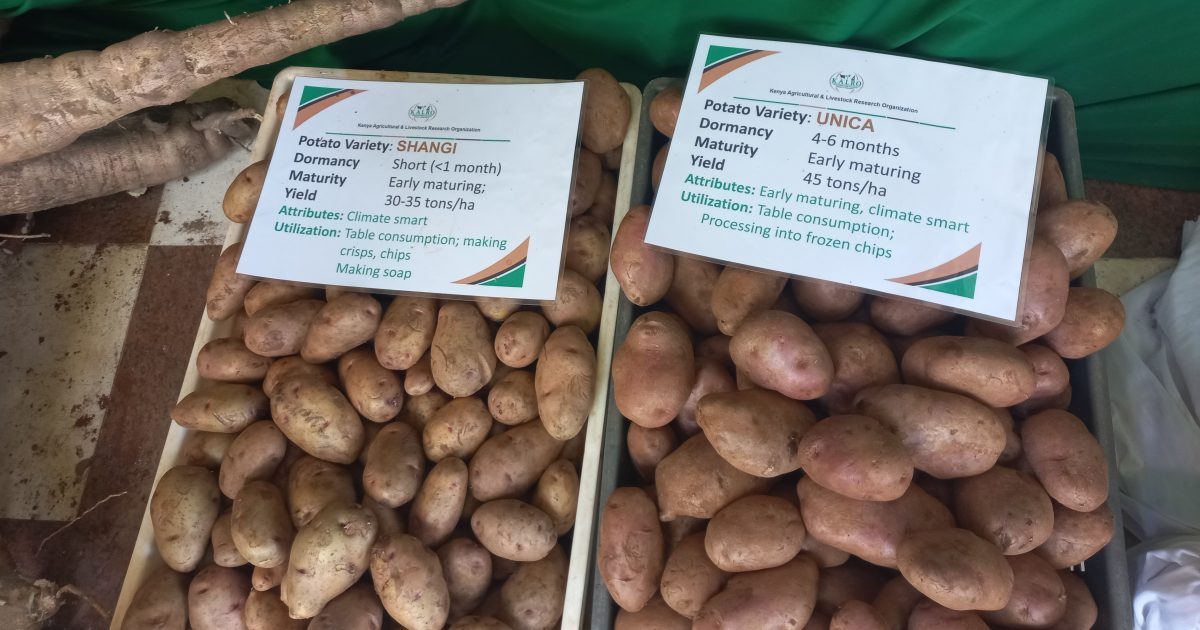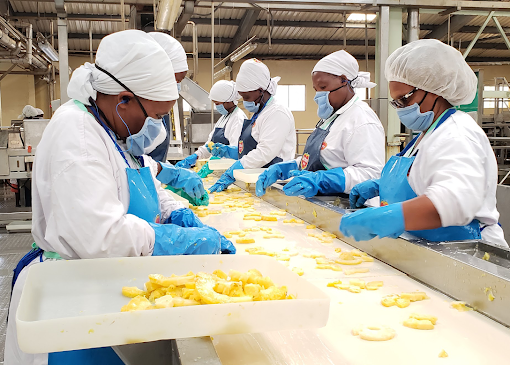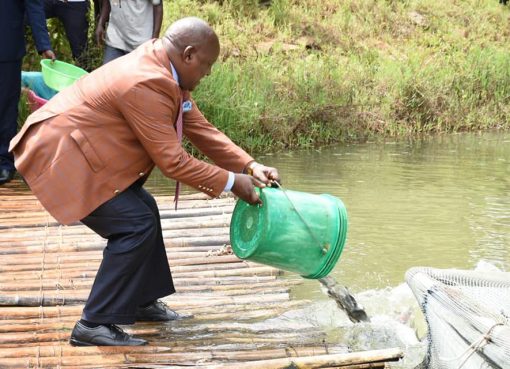Recycling of potato seeds is a limiting factor to better yields especially when climatic factors are not favourable to the crop.
According to experts, this might be because of the seed system in the root and tuber crops being underdeveloped at the time of harvesting
Local, international researchers and agriculture stakeholders attending a one-week conference in Kenya have noted that the majority of farmers in the country and region choose recycled seeds for farming resulting in reduced harvests and emerging diseases and pests.
Potato is the second most consumed crop after maize that is produced in 20 of Kenya’s 47 counties under varying socio-economic and climatic conditions.
Assistant Director, Crop Production and Seed System at Kenya Agricultural and Livestock Research Organization (KALRO) Benjamin Kivuva said various root and tuber crops do not have sound seed systems thus making it hard for farmers to access clean planting varieties.
“Unlike in other sub-sectors like maize and beans where farmers’ access certified seeds, root and tuber crops seed production is at various stages, prompting farmers to recycle what they produce,” said Dr. Kivuva.
Kivuva observed that seed production in the root and tuber crops is largely undertaken informally and thus denies farmers an opportunity to tame emerging diseases and pests.
Director Crops Research at KALRO, Dr. Lusike Wasilwa said the country produced only four percent of certified seeds and now going to 5 percent
“We need to reach the 10 percent target and we can only do so by producing Irish potato certified seeds on farm, in small holder farmer groups”, she said adding that KALRO two years ago started training youth and farmers groups under the Kenya Climate Smart Programme in order to grow certified potato and close the gap.
We have 28 counties growing potatoes in Kenya and each should have a seed company to provide the seed, the scientists said noting that in one acre of land one needs 16 sacks of 50kg potatoes which is expensive just to move from one particular area thus the private sector should come in and roll out seeds to small holder farmers and the youth producing potatoes at the ground for the country to be sufficient.
“One bag of potato is going for Sh 3000 and we are encouraging farmers on the ground to become producers of seed as there is good money”, Dr. Lusike said
KALRO Potato Research Centre in Tigoni coordinates potato research throughout Kenya and its activities include breeding; agronomy; crop protection; post-harvest storage; food processing and socio-economics.
Dr. Moses Nyongesa, Institute Director at the KALRO Tigoni centre said that the country currently produces 1.3 million metric tonnes of potato and produces 10,000 metric tonnes of seeds.
“We have produced over 50 varieties with the most popular being Shangi, unica, Sherehekea, Kenya mpya including others while the Dutch have also introduced over 40 varieties,” he explained.
Esther Mashumba, a researcher with Tanzania Agricultural Research Institute (TARI), blamed low production to lack of commercialization of the certified seeds.
“In the region researchers in conjunction with governments have employed intensive efforts in terms of seed production. But the same lacks aggressive commercialization,” said Dr. Mashumba.
She added that there is high demand for root and tuber crops in developed markets, for instance, China and the United Kingdom.
Roots and tubers are the second most important food crops after cereals that have the potential to contribute significantly to the food security needs of the Kenyan people.
The government, two years ago developed the Root and Tuber strategy to provide a clear roadmap for sustainable growth and development of the root and tuber crops subsector.
The one-week 19th International Triennial Symposium of the International Society for Tropical Root Crops (ISTRC) that is ending today was organized by the African Agricultural Technology Foundation (AATF).
By Wangari Ndirangu




